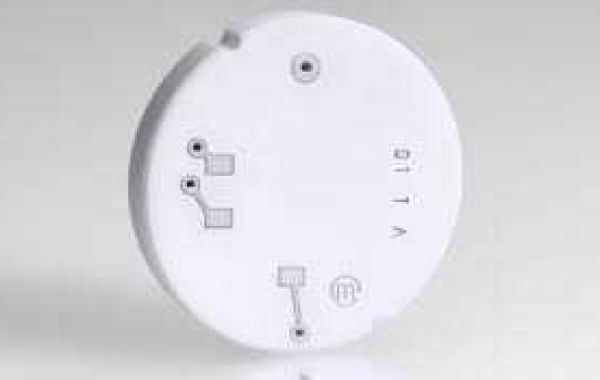In various industrial and commercial applications, accurate pressure measurement is essential. One of the most reliable and widely used technologies for pressure sensing is capacitive ceramic pressure sensors. These sensors leverage ceramic materials' robustness and the precision of capacitive measurement techniques to deliver highly accurate and durable pressure readings.
Understanding Capacitive Ceramic Pressure Sensors
Capacitive ceramic pressure sensors operate based on the principle of capacitance change. The sensor consists of a ceramic diaphragm and a reference electrode that form a capacitor. When pressure is applied, the diaphragm deforms, altering the capacitance. This change is then converted into an electrical signal, which can be processed for precise pressure readings.
Key Features and Benefits
High Accuracy and Sensitivity – Capacitive ceramic pressure sensors provide excellent sensitivity, making them suitable for applications that require precise measurements.
Durability and Robustness – Ceramic materials are highly resistant to mechanical stress, corrosion, and extreme temperatures, ensuring long-term reliability.
Wide Pressure Range – These sensors can measure a broad range of pressures, from vacuum levels to high-pressure applications.
Chemical Resistance – Unlike metal-based sensors, ceramic sensors are resistant to aggressive chemicals, making them ideal for harsh environments.
Low Hysteresis – The ceramic material provides excellent repeatability and low hysteresis, which enhances measurement consistency.
Compact and Lightweight Design – Their small footprint makes them suitable for integration into various industrial systems.
Applications
Capacitive ceramic pressure sensors are widely used across multiple industries, including:
Automotive – Fuel injection systems, tire pressure monitoring, and engine performance optimization.
Medical Equipment – Blood pressure monitoring, respiratory devices, and infusion pumps.
Industrial Process Control – Pneumatic and hydraulic system monitoring, automation, and leak detection.
Aerospace – Altitude and cabin pressure monitoring.
Food and Beverage Industry – Ensuring safe and hygienic processing environments.
Market Trends and Future Outlook
With advancements in sensor technology and growing demand for smart industrial automation, capacitive ceramic pressure sensors are expected to see significant growth. The integration of IoT and wireless connectivity in pressure sensing applications is also driving innovation in this sector. Additionally, the increasing emphasis on energy efficiency and miniaturization is pushing manufacturers to develop more compact and power-efficient sensor solutions.








